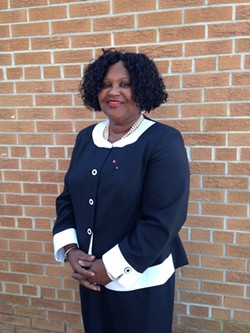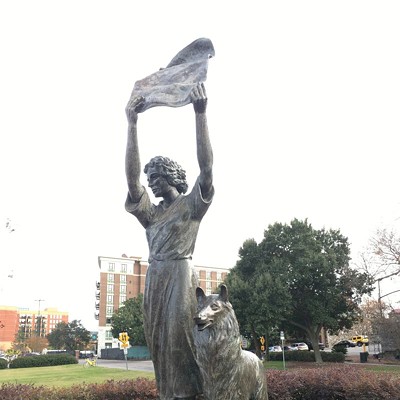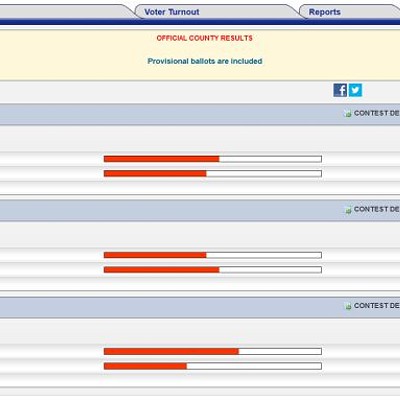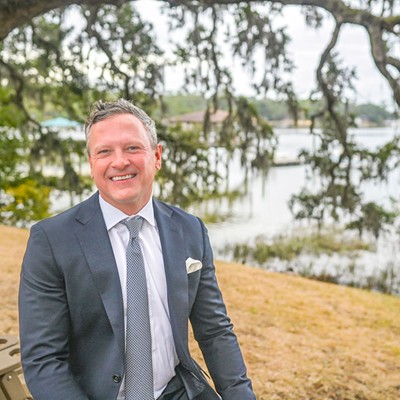IN ADDITION to the mayor, the City of Savannah has two "at-large" aldermen that represent the entire City. Linda Wilder-Bryan is the only challenger to Post 1 incumbent Carol Bell.
A lifelong Savannahian, Wilder-Bryan is a former employee of the Georgia Dept. of Corrections and the Chatham County Sheriff’s Dept. and currently works as an environmental and safety coordinator for Interfor US Inc.
In August, Wilder-Bryan’s son, 23 year-old Lawrence Bryan IV, was shot and killed on the east side of the city. No arrests have been made, and Wilder-Bryan cites crime as the No. 1 priority of her campaign. She is a member of Mothers of Murdered Sons in Savannah, along with District 1 candidate Bernetta Lanier.
How did your son’s murder affect your decision to run for office?
I don’t want it to be the focal point, but it is one of the main reasons I decided to run. My son was murdered on August 7, and it’s been a horrific experience. The only thing I thought I could do is make it easier for somebody else.
Navigating my son’s case, I found out there were 203 mothers just like me who have unsolved cases. And the City has done nothing about it. How can the City not acknowledge 203 people whose sons are dead?
Talking to the mothers, some of them don’t have the voices to say they’re angry and upset and frustrated that their kids have just been cast off. They’re discouraged and beat down.
People say that I’m an angry black woman. I just want something better.
Tell our readers about your campaign platform.
I recognize that crime and poverty are married to each other. I was a sergeant at the Sheriff’s Dept., I worked on the street with police officers. I work with kids at risk through the Eastern Stars, the Masons, the Shriners, the Alee Temple. I know this community. I am a product of Savannah.
We need to give the police what they need and be tough on crime. You can’t be tough on crime if you don’t have the manpower, if you don’t have body cams, if you don’t have what you need to make the job easier.
The officers need the tools. They’re going out there every day, they have families too. They put their lives out there we can’t even give them a comparable salary.
I’ve also worked in the prison transition program. When those people come back into public life, they have to have skills. They have these programs that teach them how to do a resume, how to dress; these people don’t need to worry about that.
When you’re a convicted felon, and they’re teaching you about resumes when no one’s going to hire you anyway, that’s a waste of money.
They need to learn to be electricians, plumbers, carpenters and have skills so that they can get real jobs.
What else can be done to alleviate poverty?
We need vocational schools that support our community. There are people around here who need hard skills.
How you boost this economy is training. We have vocational schools, but the curriculum needs to change. We need to create programs—not projects; projects are just too long—I mean 12-week, 18-weeks, to get these people certified in trades so they can be work force ready. So when jobs do become available, they don’t need to stay locked into these service jobs.
I understand that tourism provides jobs, but those aren’t jobs that can support a family. Those businesses make far too much money to be paying people 8 dollars an hour. I want everyone to have the same thing. It’s ok to have an entry level job until you get the training to be something better, but it’s not meant to be a career.
We don’t have affordable housing here, so a mother has to get two jobs to support her family.
We don’t have affordable housing here?
I don’t mean the projects. And do you know how long it takes to get on Section 8? When we’re talking about affordable housing, we’re not talking about for a small section of people. Those are Band-Aids.
I’m talking about the gaps. What do you do about people who are living in an apartment and they have to do decide if they’re going to keep the lights on or eat that week?
So you get two jobs. And your son sees that you’re struggling, so he’s out there trying to sell drugs and you don’t have anyone to monitor your daughter so she gets pregnant. It’s a vicious cycle.
So when I say affordable housing, I mean earning salaries, living wages, career wages.
When you talk about affordable housing and putting money into a community so that it’s prosperous, I don’t understand how you can spend 3 million dollars on the fairgrounds. In all of these districts, there are boarded-up houses and blight. There are over 100 houses listed for the abatement program for back taxes. Do you know how much $3 million could have bought?
Let the City buy up the blighted houses. Then hire all of the people we said didn’t have skills who have been trained by these new programs.
Why Post 1 instead of running in your district?
The Post 1 gives me an opportunity to do good for all of the districts. Each and every one of them are frustrated. The person who has the job has to have stamina, have passion, to be able to work all the areas.
My opponent has only been servicing certain areas, yet she says great things are happening. I don’t understand how we can say that great things are happening.
I walk, I’m pounding on doors in every district. And in every district, there’s blight, garbage, crime, poverty. I want great things to happen here, and in Post 1, I can ensure that all of the districts get the same piece of that pie.
If elected, what would be your first action?
To get to that budget. To see if there’s any money available to take care of the projects and programs and make sure there’s equity in the services. A lot of the departments aren’t doing what they’re supposed to do. I want to hold them accountable. I’m not trying to reinvent the wheel, just hold people responsible.
Once I looked at the budget, I would make a schedule [for meetings] that people can actually attend. I don’t see how [councilmembers] are attending neighborhood association meetings because there’s three or four happening at the same time. If you want to listen to people, you need to be there.
I would also address small business. Small businesses take a lot of time and money to create. And then you go downtown, and they tell you there’s this zoning and that variance we got this ordinance—they’re working against us.
There has been much criticism of the city manager this election. Any thoughts?
I know what it says in the city charter, but the City Manager goes by the Council’s vote. I’ve never worked with her, and I don’t want to say whether she’s doing a good job or a bad job. [The Council] hired her to do nothing other than their bidding. If she’s to blame, they’re to blame, too, because she goes by their votes.
Nothing’s happening the way it’s supposed to. We can’t fault one person. There are nine people on that council.
There’s got to be some collective ideas on how to make it work. People have just given up. They don’t even want to vote because they feel like their votes don’t matter.
Another thing, people don’t know they can vote four times—for the two at-large posts, for their district alderman and for the mayor. How does that information not filter down to them?
What can be done to facilitate better communication to citizens?
The neighborhood associations need to be stronger. Most of the people I talk to don’t have computers. We have modern technology, but the people who need the information the most don’t know about it.
Everyone is supposed to be getting the same information, the same services, but they’re not.
We need to share the information, include them in the process. It seems like in the projects, in the public housing, no one wants these people to be a part of the process.
I went out to the Housing Authority and to Fellwood Homes, and they can’t even put signs out who they’re supporting in the election. It’s one of the rules. I don’t understand that.
I’m not trying to be a rocket scientist. I’m not trying to reinvent the wheel. I just want the things that are already in place to be available for everybody.
We have to get in those communities and walk. We don’t sit downtown and be oblivious to who we’re supposed to serve. We’ve got to knock on doors. We’ve got to get people engaged.
To make great things happen, we have to include everyone.





























